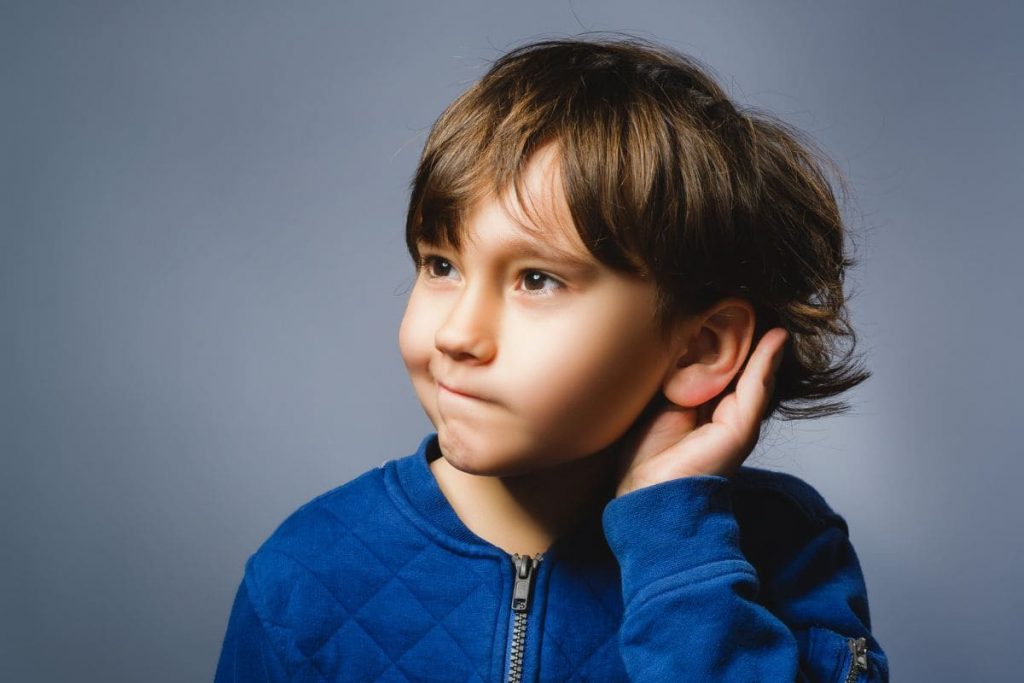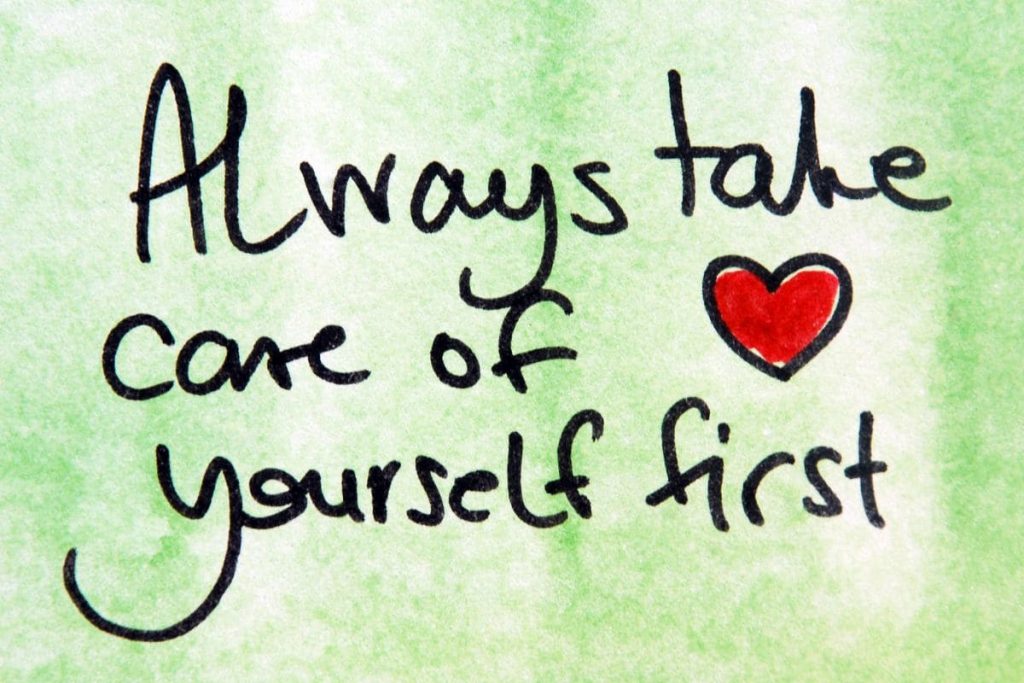As parents, we all want our highly sensitive children to feel loved and accepted for who they are. But when it comes to kids with higher sensitivities, verbal reassurance can play an even bigger role in their emotional world, helping them achieve peace of mind.
Words like “I love you” or “You did great!” may seem simple but mean so much more when spoken with genuine affection.
Highly sensitive children often face additional struggles such as feeling easily overwhelmed by sensory input or having difficulty expressing themselves.
With understanding and guidance, however, these challenges become easier to manage over time – especially if your highly sensitive child is hearing the right messages throughout the process.
In this article, I’m going to discuss 10 specific things your highly sensitive child needs to hear from you. So let’s take a look at important phrases your little one should be hearing regularly!
1. To Every Highly Sensitive Person – It’s Okay To Make Mistakes

Highly sensitive kids may be perfectionists and hard on themselves when they make mistakes. Mistakes don’t have to define your child or children’s behavior.
Let them know that making mistakes is a normal part of learning and growing and that it’s okay to not be perfect.
With patience and understanding, mistakes become part of the journey toward success rather than roadblocks on the way there.
This allows our highly sensitive kids to approach daily life, without feeling like every decision has an immense amount of pressure attached to it.
2. Highly Sensitive Kids – You Can Express Yourself In Your Own Way

As a parent of a highly sensitive child, it is important to communicate with them in an understanding way. It is essential for their self-awareness and growth that they are able to express themselves without judgment or criticism.
Encourage your highly sensitive child to talk about how they are feeling so that you can understand where they’re coming from. Explain to them that all feelings are valid and should be expressed authentically and respectfully.
It is also important to let your highly sensitive child know that there is no “right” or “wrong” emotion – every emotion has its place and purpose, whether good or bad.
Highly sensitive kids may not always feel comfortable expressing big child’s emotions about themselves verbally or in the same way as others. Encourage them to find their own unique ways of expressing themselves, such as through art, music, or writing. That is also one of the reasons why introverts prefer writing over talking.
3. Your High Sensitivity Is A Gift

Your high sensitivity, is a gift like no other. It allows you to pick up on subtleties that others may miss and gives you an extra level of insight into yourself, as well as the emotions of others.
With your sensory input processing sensitivity, high sensitivity, and being sensitive people, you have been gifted with a heightened awareness of your environment. You are able to process more information than most in any given situation, which can lead to feeling overwhelmed or self-conscious at times.
But it can also be used for good – by allowing you to empathize deeply with the feelings of those around you and offer comfort when needed.
You need to remember that there’s nothing wrong with having strong reactions; it means that you simply care about things beyond measure! Instead of seeing this personality trait as something negative, learn how to use it positively so that it works for you instead of against you.
4. You Can Ask For Help – You Are Not Alone

Highly sensitive children may feel embarrassed or ashamed to ask for help when they need it. Let them know that asking for help is a sign of strength, not weakness and that you are always there to support them.
Other children, family members, and even peers or siblings with whom they interact can be great sources of comfort and reassurance. Sometimes all it takes is having someone lend an ear without any judgment or criticism.
That kind of connection helps boost your self-esteem and confidence as you work through challenging situations. It also reminds you that despite the struggles, you’re not alone – somebody cares about what happens to you and wants to help.
So don’t hesitate if ever something feels too hard: reach out so that together we can find ways to make things better for your sake.
5. It’s Okay To Take Care Of Yourself First

John, a highly sensitive child, often felt overwhelmed by his own feelings and emotions. His parents would tell him to just “suck it up” or try harder, but this only led to power struggles between them. John was not alone – many other sensitive kids feel the same way.
It’s important for highly sensitive people and highly sensitive children to know that they can take care of themselves first without feeling guilty about it.
For example, if you’re feeling too anxious or stressed out in a situation where everyone else seems fine, don’t compare yourself to them – instead take steps to manage your mental health needs in whatever way works best for you.
That might mean taking time away from the group to do something calming like reading or going outside for some fresh air. You could also talk with someone you trust about how you are feeling. Whatever it is, make sure that your well-being comes first and that it feels good in the long run.
6. You Don’t Have To Compare Yourself To Others

Highly sensitive children may be more prone to comparing themselves to others, which can lead to feelings of inadequacy. Encourage them to focus on their own unique strengths and qualities, rather than comparing themselves to others.
It’s important for them to remember that everyone is unique, and comparison isn’t healthy.
Remind your highly sensitive child that although life isn’t perfect for many kids, and there will be times of difficulty, they don’t need to feel overwhelmed by comparing themselves with others who seem stronger or more capable than they are.
They possess great strength too; it just looks different than what society often values as success. Let them know that all experiences should be celebrated, whether small successes or failures – this way helps build resilience which will carry into adulthood.
7. You Have The Power To Change Your Thoughts

You have the power to change your thoughts! It’s an incredible superpower that you can use to help yourself manage other mental health challenges too.
As a highly sensitive person, your emotional reactions may be more intense than those of other people and it’s important for you to know that this very high sensitivity is normal. Sensitive people’s brains are wired differently and so they experience emotions at a higher intensity than others emotions.
If you’re an anxious child or teen, understanding how to gain control over your thoughts can make all the difference in managing anxiety.
By recognizing when negative thinking patterns arise and shifting them into positive ones, you can start to take back control and feel better about yourself. You don’t have to accept every thought that passes through your mind – by learning how to challenge unhelpful beliefs, you can begin feeling empowered again.
It takes practice but with patience, self-compassion and some effort on your part, it is possible for you to become aware of what triggers certain thoughts or feelings within yourself and learn how to respond accordingly.
8. It’s Okay To Say “I Don’t Know”

It’s okay to admit when you don’t know something. As a highly sensitive child, having control over your emotions and life is important for you.
You have an innate personality trait that allows you to have big emotions and deeply feel things in ways others may not understand or appreciate. This can be both a blessing and a curse; it means that when negative emotions arise they can be much more intense than those of other children your age.
But feelings are just feelings – they cannot hurt you if you allow yourself the freedom to acknowledge them but not get overwhelmed by them.
It’s important to remind your highly sensitive child that it’s okay to say ‘I don’t know’ and let go of needing to always have all the answers – because this will help them develop resilience as well as better manage their difficult emotions.
9. You Are Capable Of Handling Difficult Situations – You Are Strong

One way to help your highly sensitive child cope with intense emotions and during challenging moments in life is by teaching them healthy coping mechanisms such as taking deep breaths or counting backward from ten before responding when feeling overwhelmed.
Another helpful strategy would be helping them recognize how their feelings affect their behavior and giving them tools on how to manage emotional reaction and stress more effectively.
In order to build resilience and confidence, highly sensitive children tend to need reassurance that it’s okay if things don’t always go according to plan; encourage them to do what works best for them instead of following society’s expectations for success.
10. You Are Enough Just As You Are

You don’t need to change who you are in order to fit in or make other people happy – you are enough just as you are.
Your highly sensitive temperament is not something to fix but rather an integral part of who you are. Embrace it and use it to your advantage!
When faced with difficult situations, take the time to process them by reflecting on your thoughts and feelings, journaling if necessary. This will help give clarity and direction moving forward.
Questions About Highly Sensitive Children
How Can I Help My Highly Sensitive Child Feel More Secure?

The first step is to recognize that their high sensitivity isn’t a bad thing; it’s simply part of who they are. Make sure they know that being different is okay – in fact, it’s something to be celebrated!
Secondly, try to create a consistent environment for them as much as possible. This could mean keeping their daily routines steady or setting aside time each day for activities that bring comfort and joy without changes in their environment.
It’s also essential to communicate openly with your highly sensitive child about their feelings. Show them lots of empathy and validation when explaining why certain situations may cause stress or anxiety.
Finally, make sure there are plenty of positive reinforcements in place too – like rewards for good behavior or praise for accomplishments. Being able to show them love and appreciation will go a long way toward making them feel more secure in themselves and their surroundings.
What Activities Can I Do With My Highly Sensitive Child To Help Them Cope?

There are many different types of activities that parents can do with their highly sensitive children. These range from art projects or listening to music, to physical activities like swimming or bike riding.
Whatever activity you choose, make sure it’s something they enjoy doing and that allows them to express themselves freely without judgment. Doing so will create a sense of security for your highly sensitive child, which is essential when dealing with difficult emotions.
In addition, teaching mindfulness techniques such as deep breathing exercises or visualization can also be beneficial for helping your highly sensitive child learn how to manage their feelings effectively. Allowing them time each day just for themselves – free from external pressures – is another great way to help build emotional strength and confidence over time.
How Can I Set Boundaries That Work For My Highly Sensitive Child?

Setting boundaries for a highly sensitive child’s behavior can be an arduous task. It’s like walking on eggshells, trying to navigate the fine line between providing support and keeping order in the household.
But as difficult as it is, setting boundaries for your little one is essential for their development of self-confidence. After all, by allowing them some freedom within safe parameters they can grow into secure adults with a strong sense of identity.
Start by being consistent with any rules you create; this gives highly sensitive children the assurance that they know what to expect and makes them feel secure in their environment.
Also, make sure to explain why each boundary has been set so your child understands there’s a purpose behind them – something which will also increase trust between both of you!
Finally, don’t forget that patience is key when dealing with highly sensitive kids. Open communication is paramount here too: let your little one express themselves fully and provide reassurance whenever needed.
This way not only will you have stronger bonds built upon mutual understanding, but your child will gain confidence knowing there’s always someone willing to listen without judgment or criticism.
Final Thoughts On Highly Sensitive Children

I know as a parent of a highly sensitive child, it can be difficult to make sure they feel safe and secure.
However, if you start by taking the time to listen to their feelings, setting boundaries that work for them, and helping them build self-confidence, your relationship with your child will become stronger than ever and turn into healthy relationships.
It’s important for parents of highly sensitive children to remember that these highly sensitive kids need extra love, reassurance, and emotional support, in order to thrive.
As your child grows older, don’t forget to tell them how proud you are of who they are and all the wonderful things they do. Showing appreciation is one of the best gifts we can give our children – especially those who may have difficulty verbalizing their own emotions or expressing themselves openly.

